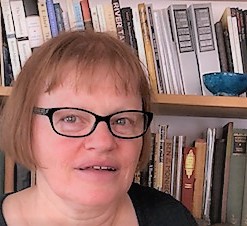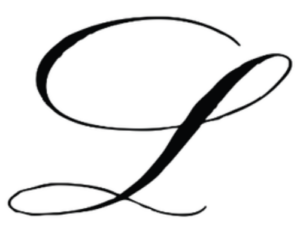by Susan Visakowitz
“We don’t make any money from this, but it’s joyful—we do it because it’s the right thing to do and we love it.” That’s how Lily Poetry Review founder and editor-in-chief Eileen Cleary explains what keeps her going. After all, Cleary works a full-time job as a hospice nurse and is a writer herself, so a sense of purpose and meaning is a necessity to staying motivated. “[The press] is a herculean effort, but building community and bringing beautiful work into the world feels good.”
Lily sprouted out of a literary forum that Cleary was holding regularly in her best friend’s living room (the name “Lily” actually comes from the friend’s dog, who was a fixture at the salons up until her death). “I really enjoyed the literary community of the forum,” Cleary says. “Many of us were emerging poets at the time and a lot of us were having difficulty finding our way. I thought maybe I could do my part.” The idea was admittedly a little overwhelming at first. “At the time, I hadn’t published my first book yet,” she says. “But I also knew, having received my M.F.A.’s later in life in my 40s and early 50s, that nobody was going to say, ‘Oh yeah, sure, come and run my small press or my established journal.’” A good friend got her over the last mile. “She told me, ‘You are enough’ and said ‘You should just do it’—so I did, and we got a huge response.”
The idea was admittedly a little overwhelming at first. “At the time, I hadn’t published my first book yet,” she says. “But I also knew, having received my M.F.A.’s later in life in my 40s and early 50s, that nobody was going to say, ‘Oh yeah, sure, come and run my small press or my established journal.’” A good friend got her over the last mile. “She told me, ‘You are enough’ and said ‘You should just do it’—so I did, and we got a huge response.”
In fact, while Lily launched solely as a literary journal in 2018, it wasn’t long before the press rapidly expanded. As Cleary recalls, “About a year into the journal, I said to myself, ‘Well, that went better than expected.’ And by then I had published my first manuscript. So, I thought, ‘Ya know, I’d really like to to be a publisher of poetry books.’”
When she made that decision, she went all in, launching Lily Poetry Chapbooks and Lily Poetry Review Books in 2019, and hit the ground running. “We put out a lot of books,” Cleary explains, “because I wanted to get really established. I thought, if we get really established, it will help our writers.”
And writers helping writers is really what Lily is all about. “I mentor people and try to expand people’s resumes—because that’s what we’re supposed to be doing as writers and poets, building each other up.”  This ethos is reflected in the press’s tagline, “Committed to poets, poems, and literary citizenship,” and Lily walks the talk: the press has not only kept the salon that started it all going (over Zoom since the pandemic started, of course), but has also established a Lily Collaborative where, according to Cleary, “All of the authors are sharing their ideas and resources with each other—like, ‘This is where you can get reviewed’ or ‘This is where you can share information about your work.’” The press also stays close with its authors from the beginning of the process of working together through promotion. “We have multiple editorial rounds and proofing rounds. We don’t just print your book,” she says. “We have a vested interest in someone’s success.”
This ethos is reflected in the press’s tagline, “Committed to poets, poems, and literary citizenship,” and Lily walks the talk: the press has not only kept the salon that started it all going (over Zoom since the pandemic started, of course), but has also established a Lily Collaborative where, according to Cleary, “All of the authors are sharing their ideas and resources with each other—like, ‘This is where you can get reviewed’ or ‘This is where you can share information about your work.’” The press also stays close with its authors from the beginning of the process of working together through promotion. “We have multiple editorial rounds and proofing rounds. We don’t just print your book,” she says. “We have a vested interest in someone’s success.”
While Cleary herself gravitates toward “very musical sounding narratives” or “lyrical, imagistic, concise poems,” she’s started to lean into “prose poems and experimental work. I have learned to widen my aesthetic,” she says. “There are lots of wonderful books not in my aesthetic that other people want to read.” She adds that the press wants all of its authors “to be very proud of who they are featured with. So, we are deliberate with our choices.”
This month, the press will release several new titles, including Chalk Song, a collaboration by Gale Batchelder, Judson Evans, and Susan Berger-Jones in response to Werner Herzog’s film Cave of Forgotten Dreams; How to Board a Moving Ship, a book of poems by Rikki Santer that make the familiar brilliantly strange again; and Eric E. Hyett’s Aporia, a collection of poems which are a verse memoir about a son’s journey caring for his mother with Alzheimer’s during the pandemic.
Remarks Cleary, “What frames it all together is that it’s all beautiful work, it all has a purpose beyond the page.” And maybe that’s because Lily has a strong purpose all its own. “We’re here to lift other poets up. I admire every single writer and editor who’s involved with Lily,” she says.
https://lilypoetryreview.blog/
EILEEN CLEARY is the founder and editor-in-chief of Lily Poetry Review and Lily Poetry Review Books. She holds M.F.A.’s in poetry from Solstice and Lesley University. She published recent work in The Sugar House Review, JAMA, West Texas Literary Review, Solstice: A Magazine for Diverse Voices, and The American Journal of Poetry, among others. Her full-length poetry collections include Child Ward of the Commonwealth (Main Street Rag) and 2 A.M. with Keats (Nixes Mate). SUSAN VISAKOWITZ is a poet and painter who loves to tell the stories of fellow creative types. She got her start reporting on music for various small blogs and eventually publications like Billboard magazine. She is focused on a new series of art projects under the name Exiting In. Instagram: @exiting_in
SUSAN VISAKOWITZ is a poet and painter who loves to tell the stories of fellow creative types. She got her start reporting on music for various small blogs and eventually publications like Billboard magazine. She is focused on a new series of art projects under the name Exiting In. Instagram: @exiting_in

